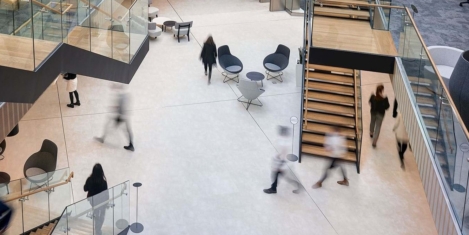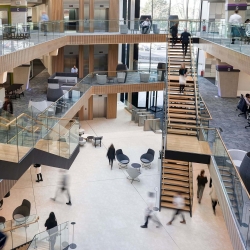To provide the best experiences, we use technologies like cookies to store and/or access device information. Consenting to these technologies will allow us to process data such as browsing behaviour or unique IDs on this site. Not consenting or withdrawing consent, may adversely affect certain features and functions.
The technical storage or access is strictly necessary for the legitimate purpose of enabling the use of a specific service explicitly requested by the subscriber or user, or for the sole purpose of carrying out the transmission of a communication over an electronic communications network.
The technical storage or access is necessary for the legitimate purpose of storing preferences that are not requested by the subscriber or user.
The technical storage or access that is used exclusively for statistical purposes.
The technical storage or access that is used exclusively for anonymous statistical purposes. Without a subpoena, voluntary compliance on the part of your Internet Service Provider, or additional records from a third party, information stored or retrieved for this purpose alone cannot usually be used to identify you.
The technical storage or access is required to create user profiles to send advertising, or to track the user on a website or across several websites for similar marketing purposes.
 According to new research by market researchers IPSOS and EPOS, 95 percent of audio end-users and decision makers experience problems relating to sound that affect their concentration or efficiency at work. Common complaints include being disturbed by loud colleagues (50 percent), overall noise levels in working environments (48 percent) and interruptions from colleagues (46 percent). (more…)
According to new research by market researchers IPSOS and EPOS, 95 percent of audio end-users and decision makers experience problems relating to sound that affect their concentration or efficiency at work. Common complaints include being disturbed by loud colleagues (50 percent), overall noise levels in working environments (48 percent) and interruptions from colleagues (46 percent). (more…)

















 A new study by Mercer claims the COVID-19 pandemic and subsequent uncertainty are accelerating changes in the way organisations around the world are working and will continue to work into the future. Particularly in challenging times, employers are focusing on their workforce, specifically fostering healthy lifestyles, supporting financial wellness and providing skills and training as careers change due to AI and technology developments.
A new study by Mercer claims the COVID-19 pandemic and subsequent uncertainty are accelerating changes in the way organisations around the world are working and will continue to work into the future. Particularly in challenging times, employers are focusing on their workforce, specifically fostering healthy lifestyles, supporting financial wellness and providing skills and training as careers change due to AI and technology developments. 






 Organisations across Europe are facing a skills challenge caused by digital transformation, with many struggling to keep pace with learning and development (L&D) needs, claims research from
Organisations across Europe are facing a skills challenge caused by digital transformation, with many struggling to keep pace with learning and development (L&D) needs, claims research from 








March 25, 2020
Loneliness has always been a workplace issue
by Nigel Oseland • Comment, Wellbeing, Working lives, Workplace design